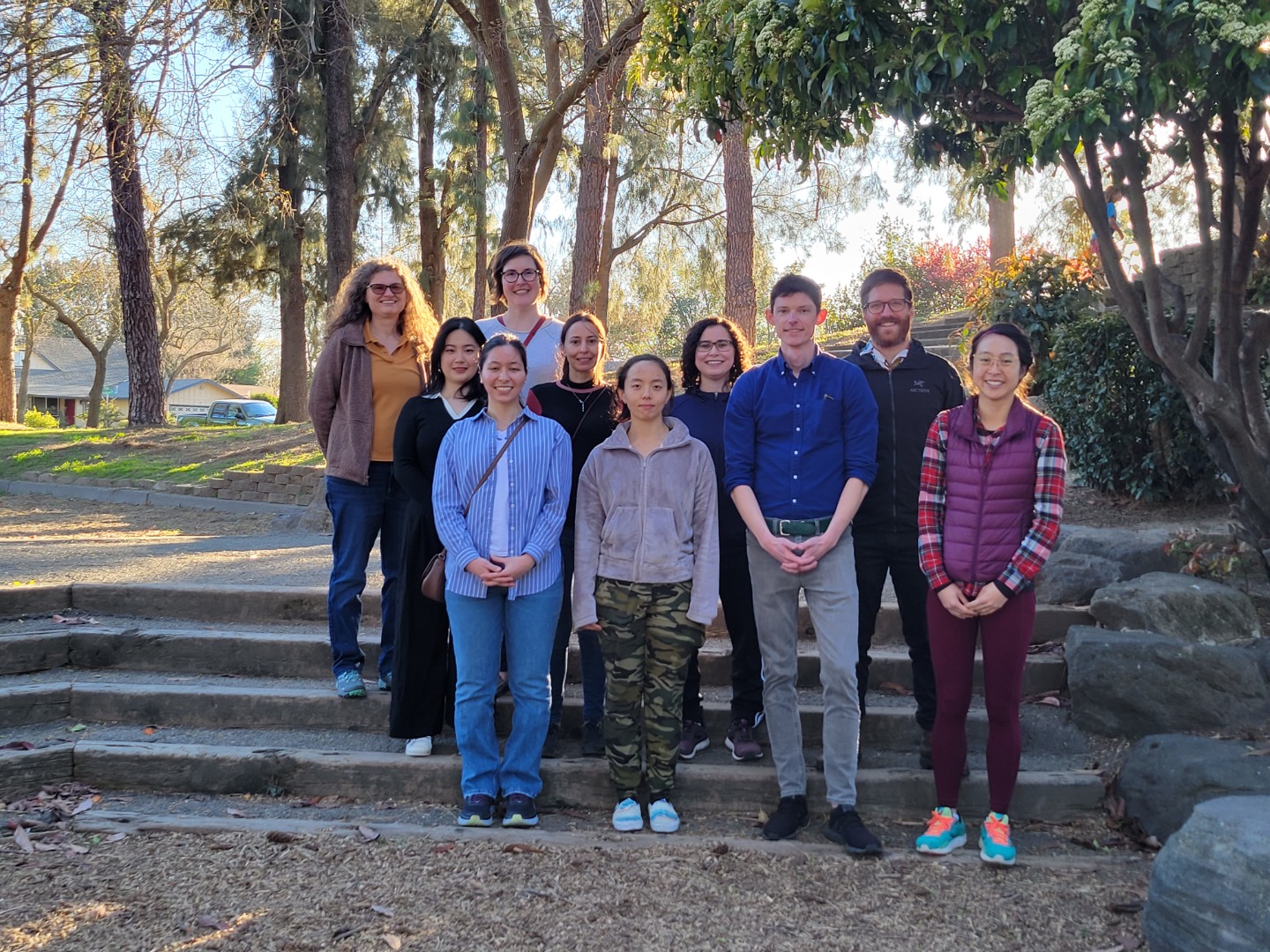ARS Employees
Zeynep Alkan, Chemist (Lab Manager)
Postdoctoral Research Associates
Jules Larke, PhD, 2021-Present
Andrew Oliver, PhD, 2021-Present
Graduate Students
Yirui Tang Villanueva, 2021-Present
Sarah Blecksmith, PhD student, Graduate Group in Nutritional Biology, 2020-Present
Yasmine Bouzid, PhD student, Graduate Group in Nutritional Biology, 2019-Present
UC Davis Junior Specialist
Yirui Tang, 2021
Sarah Spearman, 2020 – Present
Undergraduate Students
Occasionally seeking interns.
Alumni
Yue Jin, AIFS Undergraduate, Winner of Meyer Award, 2021-2022
Elizabeth Chin, PhD, Postdoctoral Research Computational Biologist, Winner of ASN Postdoc Research Competition, Winner of NNDC Young Investigator Competition, 2018-2022
Ismael Acedo, PhD student, Integrated Genetics and Genomics Graduate Group, 2019-2021
Zhengyao "Zeya" Xue, PhD, Postdoctoral Research Associate 2019-2020
Emily Yamashita, Undergraduate, 2018-2019, Graduated 2019
Gabriel Simmons, 2019, co-mentored with Ilias Tagkopoulis, Graduated 2019
Michelle Treiber, UC Davis Junior Specialist (Bioinformatics), 2017-2018
Samuel Westreich, PhD, Integrative Genetics and Genomics, Winner of UC Davis Grad Slam Competition, Graduated December 2017
Chad Masarweh, PhD student rotation, Microbiology, Winter Quarter 2017
Yuchen Li, Statistics, PhD student project, Spring Quarter 2017
Eric Kwok, BS, Genetics, Graduated 2017
Seren Pollard, Undergraduate Intern from University College Dublin 2017
Shannon Joslin, PhD program, Genetics, July 2016-June 2017
Kristen Beck, PhD, Biochemistry, Molecular, Cellular and Developmental Biology, Graduated 2015
Pedro Ivo Silva, undergraduate intern summer 2013
Matthew Porter, MS student summer 2013
Gina Turco, PhD student rotation, 2012
Stella Hartono, PhD student rotation, 2011



